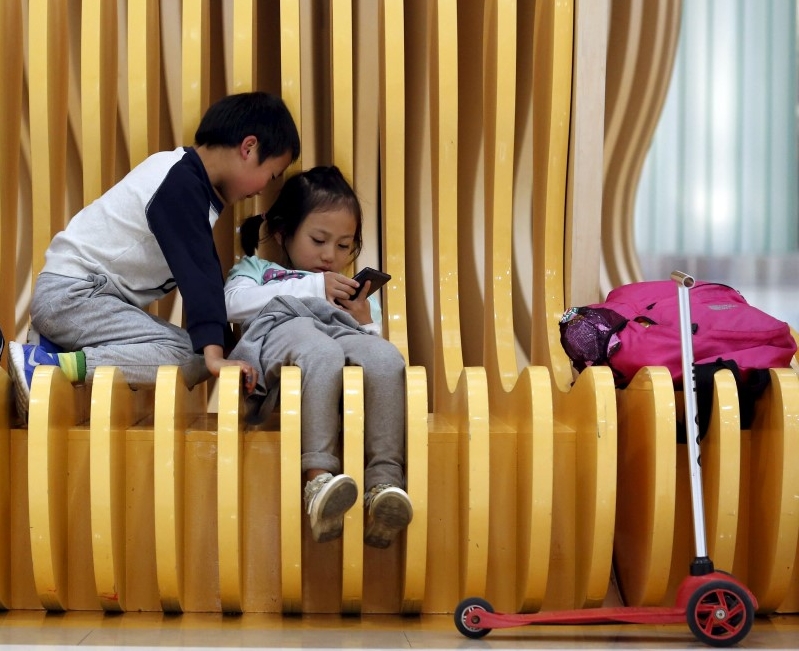
China has unwound its one-child policy, for decades a symbol of invasive and coercive government planning, but the shift has been met with a disinterested shrug from many younger couples.
"People are thinking: Why increase our burden by having another baby?" said Wu Tingting, a young mother pushing her one-year-old daughter in a stroller in the southern city of Zhuhai on Friday.
The ruling Communist Party announced on Thursday that all families in China will be eligible to have a second child, its biggest social policy shift in three decades, in a move to ease the burden of a fast-ageing society at a time of slowing economic growth.
About 90 million families may qualify for the new two-child policy, which would help raise the population to an estimated 1.45 billion by 2030, the National Health and Family Planning Commission said in an online statement. China, the world's most populous nation, had 1.37 billion people at the end of last year.
For decades, China harshly implemented the one-child policy, leading to forced abortions and infanticides across the country. In recent years, however, the policy has been relaxed, and some couples are allowed to have a second child. Others are permitted a second child if they pay a fine.
Wu, the young woman in Zhuhai, said prior to the policy change, she would have been fined 200,000 yuan (about $31,500) if she had a second child. The fine will now be removed, but she remains ambivalent about another child.
"(People) will think about giving more to their existing child... and maybe spend more on education and travel, see more of the world," she said.
"The economy is now more uncertain, so that's another thing we have to carefully consider."
Beijing loosened the family planning policy in late 2013, allowing couples to have a second child where one partner was an only child, but as of June, only 1.5 million of the 11 million eligible couples applied to expand their family, the official Xinhua news agency reported.
"The cost needed to raise a kid is too high (in the cities)," said a man named Chen, who was visiting Hong Kong from the Chinese port city of Xiamen along with his wife and three-year-old daughter.
"Parents in the rural areas may not care, but for me I want to take very good care of my child. You need to pay for their education fees and later university, and if it's a boy you need to buy him a home, if it's a girl you need to buy her dowry."
"GREAT NEWS"
Some couples however were enthusiastic about the latest relaxation.
Frank Zhang, a government official, said he and his wife have longed for a second child for their two-year-old son to grow up with, but his job made it all but impossible to circumvent China's official policy.
He even considered quitting to enter the private sector, where violations of family planning rules are more common and no longer carry much stigma. Now he won't have to.
"This is great news for me," Zhang said.
The so-called "one-child policy" was introduced in the late 1970s to prevent population growth spiraling out of control, but is now regarded as outdated and responsible for shrinking China's labor pool.
It has also led to the ageing of China's society, a phenomenon usually restricted to industrialized nations.
For the first time in decades, the working age population fell in 2012, and China could be the first country in the world to get old before it gets rich. By around the middle of this century, one in every three Chinese is forecast to be over 60, with a shrinking proportion of working adults to support them.
Even if there is a mini baby boom as a result of the policy shift, it will be nearly two decades before the children enter the workforce.
One potential upshot of the policy change, according to some experts, is that it could help correct the male-female gender imbalance in China, where like most Asian nations, there is a bias for sons. There are 115 boys born for every 100 girls in China compared with 105 boys per every 100 girls in the United Kingdom, according to CIA data.
Wang Honglin, a 32-year-old maid working in Beijing, said she is now considering a second child and preferred to have a girl since her first is a boy.
"A boy and a girl makes for a perfect family," she said, referring to the Chinese character for "good" which is consists of characters for boy and girl.
For others, the policy change has simply come too late. Many of those for whom the rule change could make a difference have moved on with their lives.
"China should have allowed second children 20 years ago," said a 47-year-old doctor in Shanghai who would only give her surname, Cui.
(Additional reporting by Adam Jourdan and Anita Li in Shanghai, Megha Rajagopalan in Beijing and Teenie Ho in Hong Kong; Shanghai and Beijing newsrooms; Writing by John Ruwitch; Editing by Raju Gopalakrishnan)






